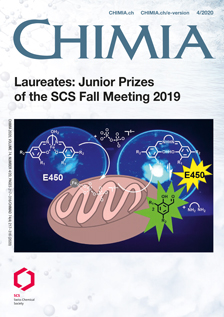Exploring the Ubiquitin-Proteasome System (UPS) through PROTAC Technology
DOI:
https://doi.org/10.2533/chimia.2020.274PMID:
32331546Keywords:
Protein degradation, Proteolysis targeting chimeras, Renal cell carcinoma, UbiquitylationAbstract
In the context of dysregulated ubiquitylation, the accumulation of oncogenic substrates can lead to tumorigenesis. In particular, mutations in Von Hippel-Lindau (VHL) E3 ubiquitin ligase are related to overexpression of hypoxia-inducible factors (HIF-1α and HIF-2α) which is evolving into renal cell carcinoma (RCC). The classical approach of drug discovery focuses on the development of highly selective small molecules able to bind and to inhibit enzymatic active sites. This strategy faces limitations in the context of 'undruggable' proteins, which are challenging to target. The discovery of Proteolysis Targeting Chimeras (PROTACs) as an alternative strategy to induce selective protein degradation is presented as a working hypothesis to understand further the Ubiquitin-Proteasome System (UPS) and eventually counteract RCC cancer lacking VHL ubiquitin ligase.
Downloads
Published
Issue
Section
License
Copyright (c) 2020 Carlotta Cecchini, Sébastien Tardy, Valentina Ceserani, Jean-Philippe Theurillat, Leonardo Scapozza

This work is licensed under a Creative Commons Attribution-NonCommercial 4.0 International License.







